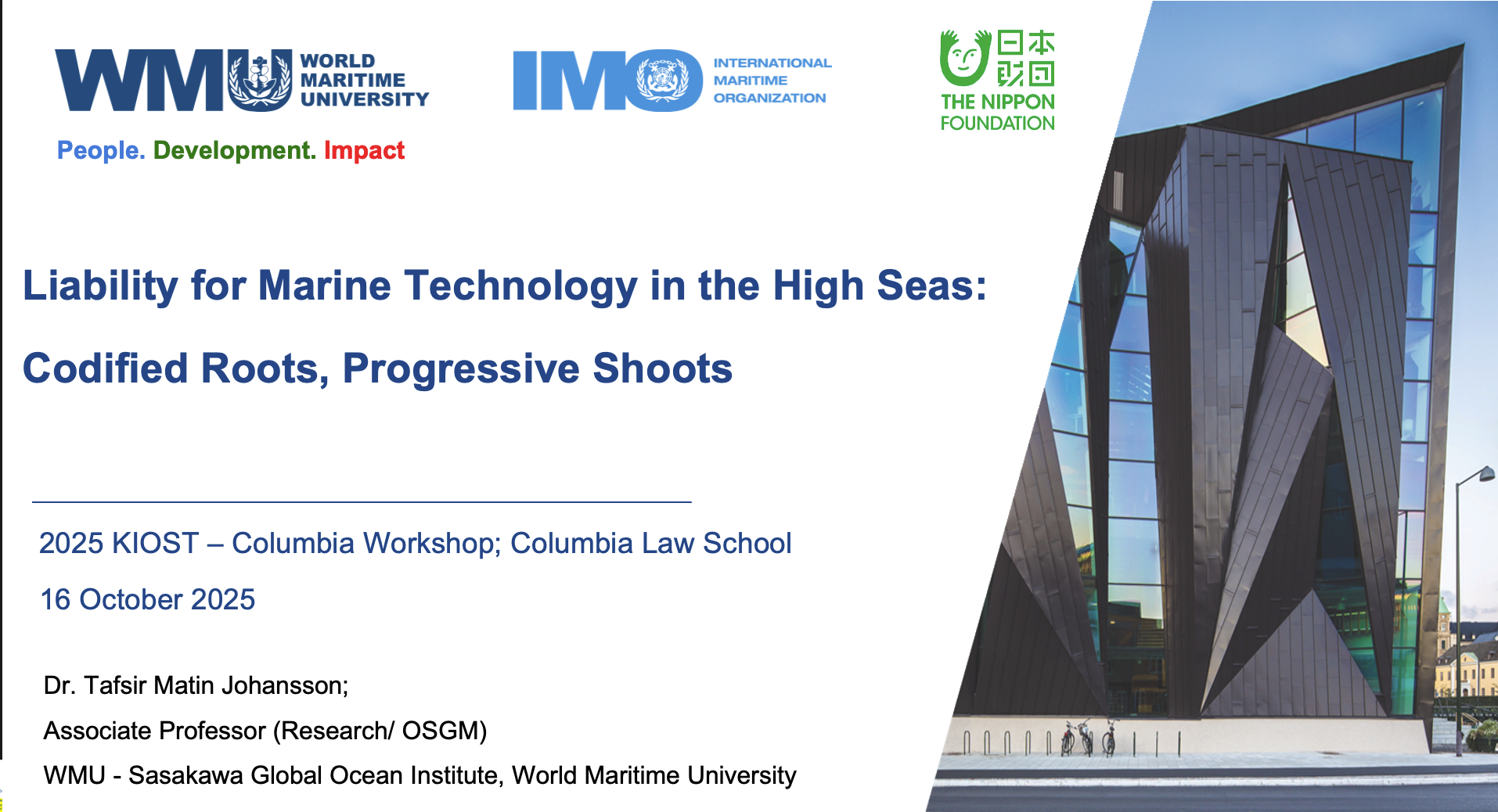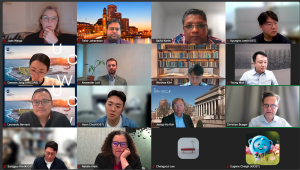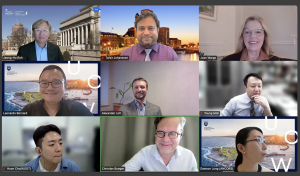
On 16 October 2025, Associate Professor Tafsir Matin Johansson of the World Maritime University (WMU)-Sasakawa Global Ocean Institute (GOI) participated in the CKLS (Center for Korean Legal Studies) KIOST (Korea Institute of Ocean Science and Technology) Joint Workshop on “UNCLOS in the 21st Century: Legal Challenges in an Evolving Maritime Domain” at Columbia University. His presentation, “Marine Technology: Saint or Liability Taint? Provoking the Margins of Public International Law,” formed part of the Third Pillar of the Nippon Foundation’s Future Oceans Programme, which examines how international law must adapt to the rapid growth of marine technology.
CKLS KIOST JOINT WORKSHOP:
UNCLOS IN THE 21ST CENTURY: LEGAL CHALLENGES IN AN EVOLVING MARITIME DOMAIN
Proposing a move toward more transparent accountability, Dr. Johansson discussed the need for mechanisms such as mandatory insurance, compensation funds, and trust-based systems to address pollution and accidents linked to marine technologies. His analysis underscored that while innovation is essential to the future of ocean governance, technological advancement must be matched by robust legal and ethical frameworks. The presentation reaffirmed the Nippon Foundation’s commitment to the Future Oceans Program, ensuring that marine innovation develops in tandem with the principles of responsibility, sustainability, and global equity.
For more information please contact the WMU-GOI at goisecretariat@wmu.se
About the World Maritime University
The World Maritime University (WMU) in Malmö, Sweden is established within the framework of the International Maritime Organization, a specialized agency of the United Nations. The mission of WMU is to be the world centre of excellence in postgraduate maritime and oceans education, professional training and research, while building global capacity and promoting sustainable development. WMU is an organization by and for the international maritime community and is committed to the United Nations 2030 Agenda for Sustainable Development.
About wmu-goi
The World Maritime University (WMU)-Sasakawa Global Ocean Institute (GOI) is an independent focal point for the ocean science-policy-law-industry-society interface where policymakers, the scientific community, regulators, industry actors, academics, and representatives of civil society meet to discuss how best to manage and use ocean spaces and their resources in accordance with the United Nations 2030 Agenda for Sustainable Development. The Institute was inaugurated in May 2018 and made possible through generous support from The Nippon Foundation of Japan, the Governments of Sweden, Canada, and Germany, as well as the City of Malmö.


